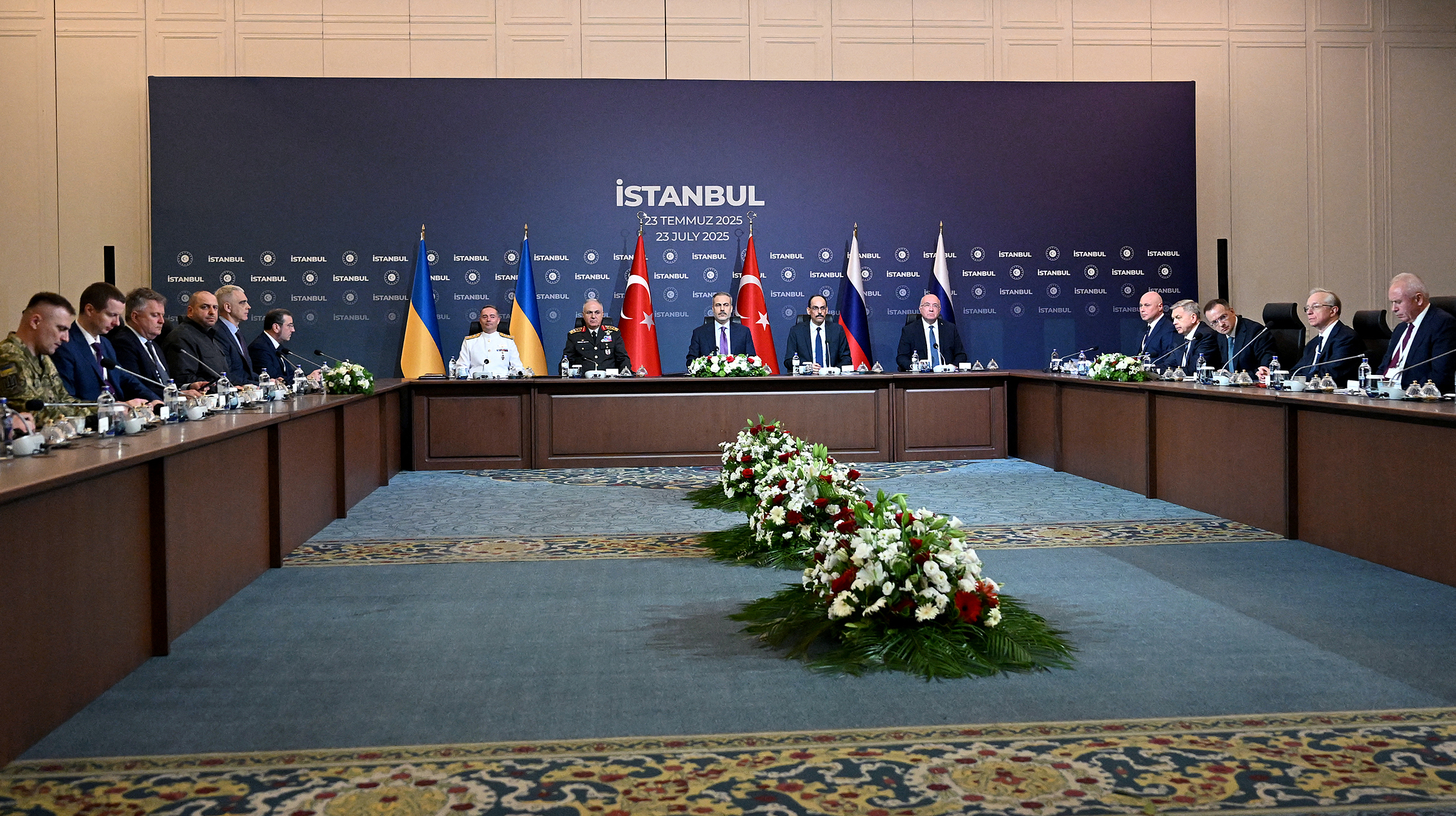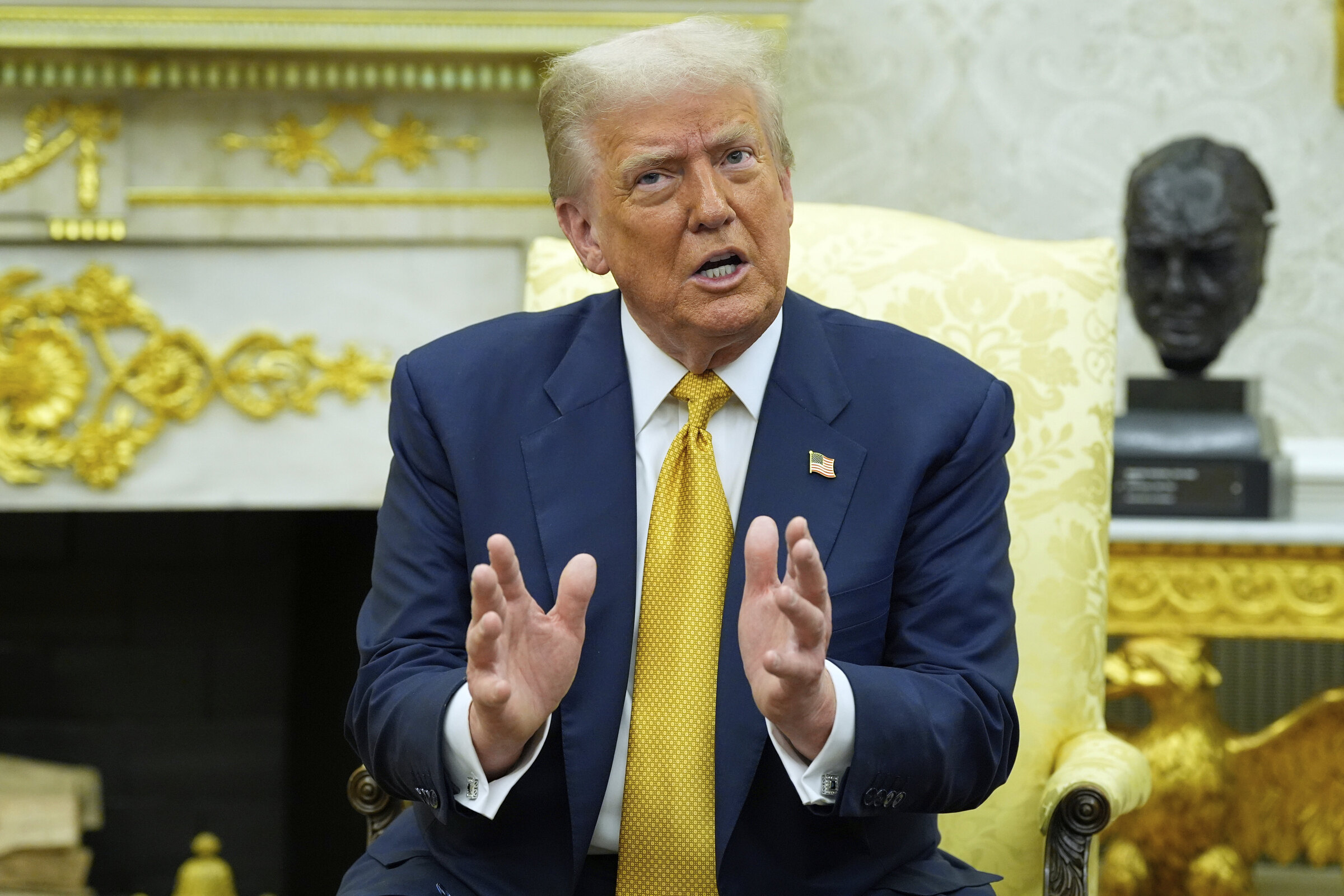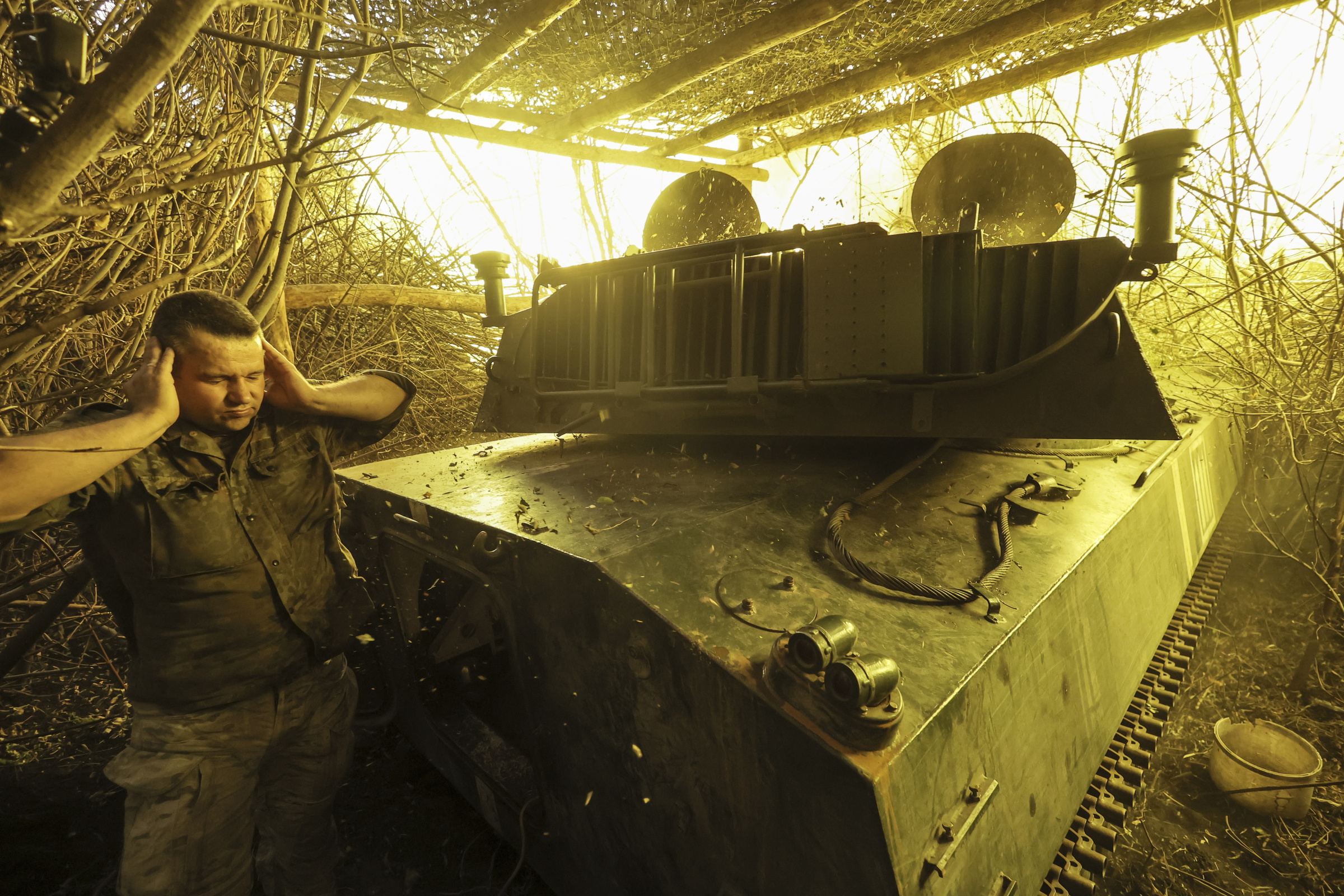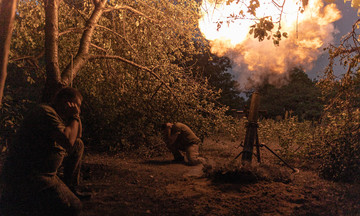The third direct negotiation between Ukrainian and Russian delegations in Istanbul, Turkey, on 23/7 lasted only about 40 minutes, the shortest to date. The meeting concluded without any substantive results towards ending the conflict.
"We have made no progress on ending the war or achieving a ceasefire," Rustem Umerov, the senior official leading the Ukrainian delegation, said afterward. He noted that numerous meetings and six months of work had failed to bring the two sides closer to ending the conflict.
 |
Russian (right) and Ukrainian (left) delegations participate in talks in Istanbul, Turkey on 23/7. Photo: AFP |
Russian (right) and Ukrainian (left) delegations participate in talks in Istanbul, Turkey on 23/7. Photo: AFP
Umerov said Ukraine had once again proposed a meeting between President Volodymyr Zelensky and his Russian counterpart, Vladimir Putin, but Moscow remained unwilling.
Observers suggest the current stalemate demonstrates that recent warnings and ultimatums from US President Donald Trump have clearly not prompted Russian concessions.
Last week, Trump threatened to impose a 100% tariff on Russia's top trading partners if Moscow did not reach a peace agreement with Kyiv within 50 days. The US president also said he would work with European allies to send additional Patriot air defense systems to Ukraine.
This ultimatum was Trump's latest attempt to increase pressure on President Putin as Russia intensifies its attacks in Ukraine.
During his 2024 campaign, Trump pledged to quickly end the Russia-Ukraine conflict after re-election. However, following several phone calls with his Russian counterpart and three direct rounds of talks between Russia and Ukraine, the situation appears stagnant.
US officials say Trump's intervention led Russia and Ukraine to agree to direct talks after nearly three years of war. However, this holds little significance now, given the diametrically opposed views of both sides.
Russia insists that any peace solution must address the "root causes" of the conflict.
These "root causes," according to Russia, include the "demilitarization and denazification" of Ukraine, protecting the Russian-speaking community in the Donbas region, countering NATO's eastward expansion, and ensuring Kyiv's neutrality. This means Ukraine would have to change its political system, drastically reduce its military, abandon its NATO aspirations, and recognize the four annexed provinces.
Ukraine firmly rejects these demands, particularly recognizing Russian sovereignty over the four annexed provinces.
"President Putin remains uninterested in an agreement unless it's on his terms," commented Alexander Gabuev, director of the Carnegie Russia Eurasia Center. He believes the talks are merely a "show" to appease Trump, rather than a genuine effort to resolve the conflict.
Analysts suggest that while Trump has expressed growing frustration with Russia's continued attacks on Ukraine, he has not yet taken the necessary steps to pressure Moscow to end the war.
"He is likely to continue to stall and wait to see what happens rather than actively push for the only viable strategy to bring peace on terms Ukraine could accept: helping Ukraine prevent Russia from taking more territory," Gabuev said.
 |
US President Donald Trump in the Oval Office, White House, on 22/7. Photo: AP |
US President Donald Trump in the Oval Office, White House, on 22/7. Photo: AP
Republican Senator Lindsey Graham proposed a 500% tariff on Russia and its trading partners. However, other Republican senators halted this idea due to opposition from President Trump, who assured he would personally take action to punish Moscow.
"President Trump has been deeply involved in the negotiation effort from the very beginning, so any decision regarding sanctions, the President wants to maintain that authority for himself," White House press secretary Karoline Leavitt emphasized.
Experts say imposing tariffs on Russia's partners would escalate an already complex trade war with numerous consequences. China and India are among the largest buyers of Russian oil and gas since the conflict began.
The promised Patriot missile systems would enhance Ukraine's air defenses but are unlikely to fundamentally alter the balance of power.
Senior US and European officials warn that Russia is intensifying its air attacks on Ukrainian cities with a volume of unmanned aerial vehicles (UAVs) and missiles far exceeding the supply of Patriot missiles the West could provide.
Ukraine has long requested longer-range missiles from the US and Europe to strike launch sites and airfields deep within Russian territory, but the Trump administration has so far refused.
Expectations for substantive results were low before the third round of talks. Kremlin spokesman Dmitry Peskov said on 22/7 that Russia had "no reason to expect any miraculous breakthroughs".
Ukraine sent Umerov, a former Defense Minister, to represent Kyiv in the previous round of talks in Istanbul in June. This month, President Zelensky transitioned Umerov to an advisory role as Secretary of the National Security and Defense Council. The Russian delegation was led by Vladimir Medinsky, a close aide and former Culture Minister with a hardline stance aligned with President Putin.
The June talks occurred a day after Ukraine launched a daring UAV attack deep inside Russia, partially destroying Moscow's strategic aircraft fleet.
 |
Ukrainian artillery fires towards Russian positions near Chasov Yar, Donetsk region, eastern Ukraine, on 22/7. Photo: AP |
Ukrainian artillery fires towards Russian positions near Chasov Yar, Donetsk region, eastern Ukraine, on 22/7. Photo: AP
These attacks boosted Ukrainian morale, but Russia subsequently imposed a series of punitive conditions in the negotiations.
These conditions remained unchanged in the third round of talks, leading to a continued impasse. Russia and Ukraine only agreed to exchange 1,200 prisoners of war each, and Moscow offered to return 3,000 bodies of Ukrainian soldiers.
After each fruitless negotiation, Russia typically escalates pressure by intensifying UAV and missile strikes on Ukrainian cities, increasing both the number and frequency of attacks.
"Russia has made it clear through continuous, large-scale air raids on Ukrainian infrastructure that it has no good faith interest in negotiations," said Yevgeniya Gaber, a former foreign policy advisor to the Ukrainian government and a senior fellow at the Atlantic Council's Turkey research program.
Vu Hoang (According to WSJ, AFP, Reuters)












